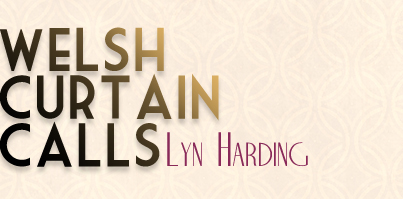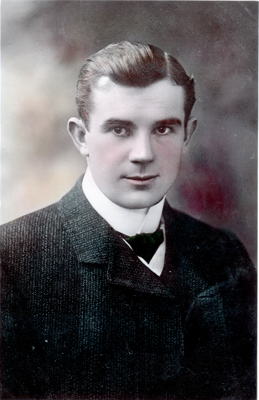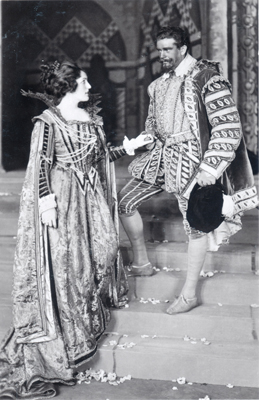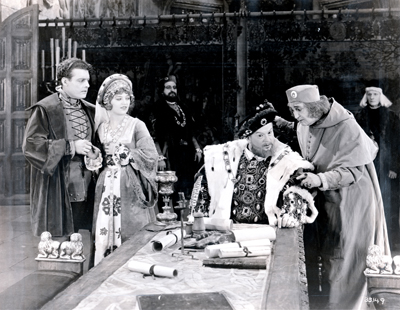
David Llewellyn (Lyn) Harding was certainly the most prominent and accomplished actors of the Victorian and Edwardian eras. He was born at the Church House Inn at St Brides, Wentlooge, in 1867. His father, Richard, was a farmer and also keeper of the Inn. His parents wanted him to become a Welsh Congregationalist minister but the young David preferred to disappear to a nearby wood to recite Shakespeare. His work on the farm was responsible for a strong physique, which was useful in his later career.
After an apprenticeship with a Newport draper David moved to another post in Cardiff and joined the St Andrew's Dramatic Society in Cathays. It was a chance meeting with a touring company en route to Bristol which gave him his first professional opportunity. He stayed with that company for two years.
His early career was sporadic in terms of employment and roles but, on his return from a tour to the Far East (India, China, Burma and Japan) in 1895, he achieved more consistent success in the UK provinces and made his debut in the West End in 1903.
Sir Herbert Beerbohm Tree sent for Lyn Harding, as he was now known, and Lyn worked with Tree for a number of years, playing many important roles in Shakespeare and other classic dramas.
Over the next 35 years, Lyn worked solidly and was acclaimed especially for his "villains": Svengali, Shylock, Moriarty and Bill Sykes amongst many others.
Lyn appeared in films from 1920 to 1941. He played Henry VIII to Marion Davies's Mary Tudor in the 1922 film "When Knighthood was in Flower" and was no stranger to US theatre.
He appeared to great acclaim in the 1939 film "Goodbye Mr Chips", starring Robert Donat. His last great theatre performances was in London in Chu Chin Chow in 1940.
Harding read the lesson at the funeral on Ivor Novello in 1951, the year before his death in retirement at Westcliffe-on-Sea.


Portrait (Left) - Lyn Harding as Drake (Right)

and as Henry VIII with Marion Davies in "When Kinighthood was in Flower" 1922